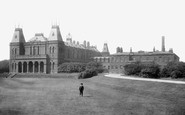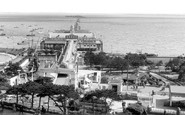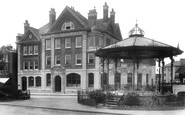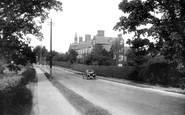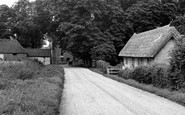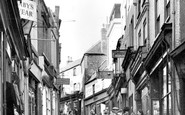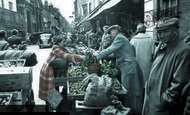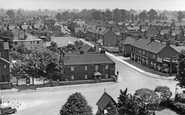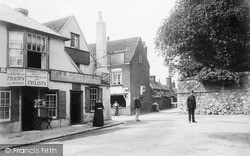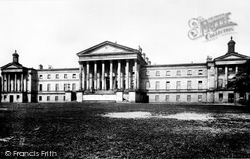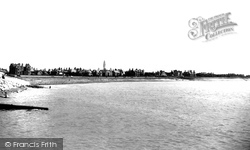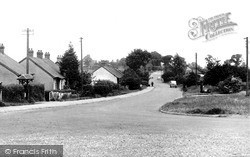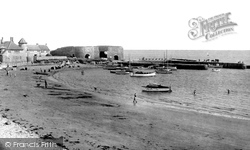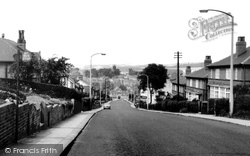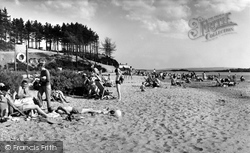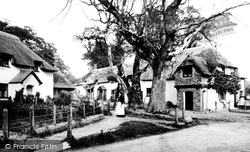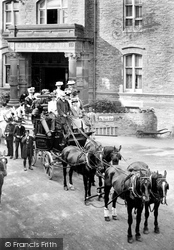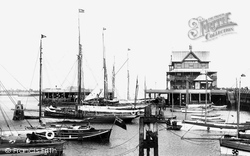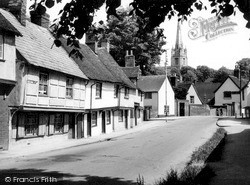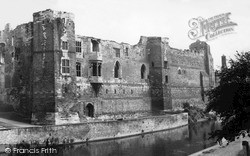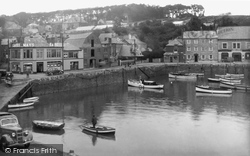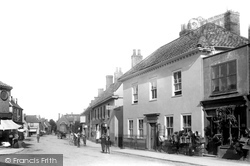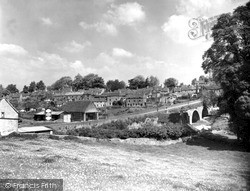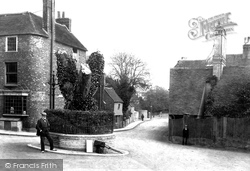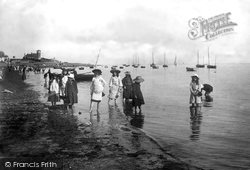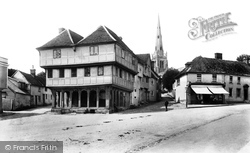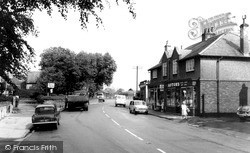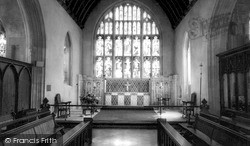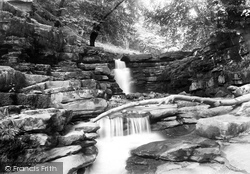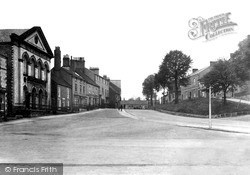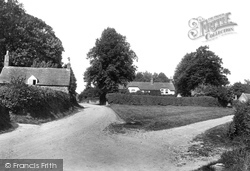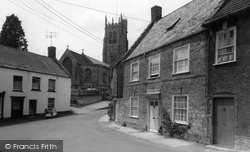Places
18 places found.
Those places high-lighted have photos. All locations may have maps, books and memories.
- Hythe, Kent
- Hythe, Hampshire
- Small Hythe, Kent
- Bablock Hythe, Oxfordshire
- Methwold Hythe, Norfolk
- Hythe, Somerset
- Hythe, Surrey
- Hythe End, Berkshire
- The Hythe, Essex
- Egham Hythe, Surrey
- West Hythe, Kent
- New Hythe, Kent
- Broad Street, Kent (near Hythe)
- Horn Street, Kent (near Hythe)
- Newbarn, Kent (near Hythe)
- Newington, Kent (near Hythe)
- Broad Street, Kent (near Hythe)
- Stone Hill, Kent (near Hythe)
Photos
360 photos found. Showing results 1,321 to 360.
Maps
101 maps found.
Books
10 books found. Showing results 1,585 to 10.
Memories
4,406 memories found. Showing results 661 to 670.
The Two Bob Gun
At the top of Queens Road in Buckhurst Hill is a small newsagents shop. It was owned by the Mr & Mrs. Silk. The shop sold papers magazines cigarettes, sweets and a few toys. Situated right across the road from where Princes ...Read more
A memory of Buckhurst Hill by
Little Sutton In 1950s And 1960s
What memories your comments conjure. How I loved the 'rec' as a child. We started on the 'baby swings' and progressed to the 'big swings' and see-saw and round-a-bout. The old shelter there was a favourite ...Read more
A memory of Little Sutton in 1960 by
Waiting Room
In Spring 1948 I caught my finger in a folding chair at school and by the evening an abscess had formed. It was so painful that because our doctor's surgery was already closed my father took me to the Infirmary, but we landed in the ...Read more
A memory of Preston in 1948 by
Pier Walk
When we were at Shoebury on holiday Mum and Dad always took me on the pier. We went out by train and usually walked back providing the weather was good. I can still remember the platforms either end and the green trains with the ...Read more
A memory of Southend-on-Sea by
This Was A New Building When The Picture Was Taken
It was built in 1897 and was designed in the Queen Anne style by the architect Frederick Wheeler FRIBA who had offices in Horsham. It is now the home of the Nat West bank. The bandstand has been moved ...Read more
A memory of Horsham in 1890 by
Very Little Has Changed
Although no longer a grammer school this does remain an educational establishment, effectively a sixth form college for Horsham. It goes by the name of The College of Richard Collyer, in honour of the man who left money in his ...Read more
A memory of Horsham by
Felsted, My Village
I was born & bred in Felsted, living in the area until 1965 when I emigrated to New Zealand. These photographs of Felsted Mill remind me of the many hours spent on the wall below the water wheel race, fishing for roach and ...Read more
A memory of Felsted by
The Dreaded Climb Up The Hill
When I was a lad, my mum would take me shopping in Folkestone's town centre. Probably to Sainsbury's in Sandgate Road, Timothy Whites, etc. Being that we lived Wood Avenue area, we would walk down Dover Road & ...Read more
A memory of Folkestone in 1953 by
A Family Business
To anyone local to Dorchester this was a familiar scene day in and day out for almost 50 years. My grandfather Ben Courtney started selling 'fruit and veg' in 1947 from hand-carts on the roadside. His son Doug started in 1950 and ...Read more
A memory of Dorchester in 1955 by
Blacksmith's Yard
My paternal grandmother Annie Cowell came from Stanford and I have always been led to believe that the space on the left of the house in the foreground, where the trees are, was the site of her father's blacksmith's ...Read more
A memory of Stanford-le-Hope in 1940 by
Captions
4,899 captions found. Showing results 1,585 to 1,608.
St Osyth (generally pronounced 'Toosey') recognised the benefits of tourism early on, as witnessed by the rack of picture-postcards for sale on the left.
It was later used by the King Edward VII Grammar School.
Inspired by the great expanse of sea and sky, Ansdell painted local scenes, including 'Herd Lassie', 'The Ploughing Match', and 'Lytham Common' (the last is of special interest, as it became the site of
At the top of the street, Church Road was already bisected by the arterial road to Southend.
The kilns are now owned by the National Trust.
Greasbrough was once described as a pleasant village 'situated on a delightful eminence'; by the early 19th century it was a farming and mining community of over 1000.
The road to the main buildings and Poole can be seen running up from the beach by the ice cream hut. Today both the ice cream hut and the gorse on the beach have disappeared.
Selworthy Green is now owned by the National Trust. The thatched cottages were erected in 1828 by Sir Thomas Dyke Acland for his retired estate workers.
By the time of this photograph the narrow gauge railway from Barnstaple had reached Lynton, and the old coaching service was retained purely for holidaymakers.
The growth of Lowestoft in Victorian times was largely down to construction by the civil engineer Samuel Morton Peto, who lived in nearby Somerleyton Hall.
Two women stand by the wall outside the Eight Bells with its Benskins board.
To the left is the splendid three-storey gatehouse built by the cathedral masons of Alexander, Bishop of Lincoln.
By the time of this photograph tourism is taking over from the traditional port activities of fishing and trading, and there are one or two pleasure motor boats moored in the harbour.
It also reveals a somewhat insensitive example of infill, no attempt having been made by the architect to follow the existing roof line.
Its location prevented it from being despoiled by the industrialists of the 19th century. Tetbury retains all the charms of a market town from the time of the Stuarts.
Just by the tree is some photographic equipment, perhaps belonging to the Frith photographer.
The oldest holiday town in Devon, Exmouth was popular by the early 17th century; it grew enormously during when the Napoleonic wars closed the Continent to our gentry, who had to holiday somewhere.
This view is little changed today, dominated by the magnificent Guildhall, built in the 15th century for the cutlers of Thaxted.
In the 1960s this was a haberdashery, run by the Aston family for two generations. Today the name survives, but it is now a tea shop.
The Perpendicular east window has three crucifixion panels dating from 1847 given by the Rev Stafford Brown, who was responsible for major repairs and works to the church.
Despite there being much industrial wasteland, the scenery round about is spectacular, and visitors can enjoy exhilarating walks by the tumbling falls.
Now known as the 'Gateway to the Moors', Pickering is a small market town still served by the steam trains of the North York Moors Railway.
By the beginning of the 20th century, Lulworth was already a popular residential area for the better-off, who may have originally fallen in love with the village on a holiday visit.
Its ancient linen trade had declined by the 20th century, and a nearby milk processing factory was one of the largest employers when this photograph was taken.
Places (18)
Photos (360)
Memories (4406)
Books (10)
Maps (101)



